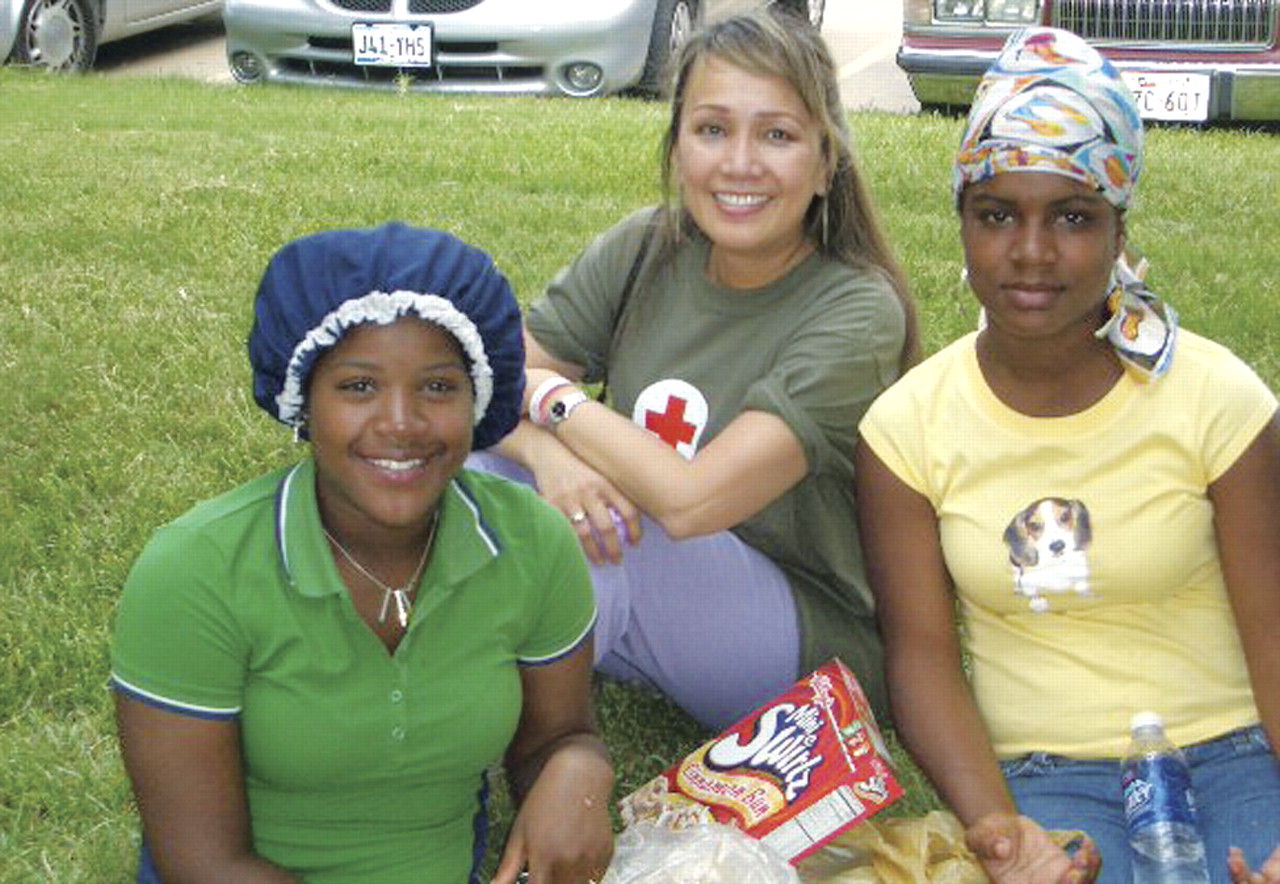Disaster-Response Specialist Won't Let Obstacles Interfere With Mission

Elizabeth Garcia-Grey, M.D., takes time to chat with Katrina evacuees. Photo courtesy of Elizabeth Garcia-Grey, M.D.
Timing is everything,” said Elizabeth Garcia-Grey, M.D., about her psychiatric work after a disaster strikes. Within 24 hours of learning that Hurricane Katrina evacuees were headed for Houston, she cut short a vacation in Oregon and boarded a plane for that city. Upon her arrival at the Reliant Center, she found that many out-of-town physicians were eager to help but unable to provide medical services because of issues about licensure.
The Texas Licensure Board was closed for the Labor Day weekend, complicating the effort to verify licenses and provide credentials. Garcia-Grey called a friend at the board office, and the friend arranged for the office to be opened so that physicians could be given temporary licenses.
Flexibility is also important. “Jump in. Don't wait for someone to tell you what to do,” she said. Out-of-town doctors relieving exhausted local physicians gives them a chance to recuperate and to attend to their own practices.
Garcia-Grey helped set up a makeshift pharmacy and a military tent as a crisis-stabilization center. She counseled autistic children and other evacuees who had been traumatized by violence in the New Orleans Superdome and people who were suffering from methadone withdrawal.
“We used everything we knew,” she said. “We went at it full throttle.”
Garcia-Grey believes that Houston's response to the influx of evacuees was“ incredible.” In fact, rather than evacuees or refugees, the term used for the displaced New Orleans residents was “guests.”
“Houston is the city with the biggest heart,” she added.
Garcia-Grey's day job is chief medical officer for child psychiatric services at Seven Counties Services, a community mental health center based in Louisville, Ky.
Garcia-Grey had searched out opportunities to hone her skills in disaster psychiatry long before Katrina's arrival.
In 1993 she helped respond to the needs of those still suffering psychological damage as a result of the eruption of Mt. Pinatubo in 1991-1992 in the Philippines. In 2004 the Federal Emergency Management Agency trained her as a community-crisis responder.
In March she went to Thailand under the auspices of Global Service Corps, a nonprofit, international volunteer organization, to help children and families affected by the tsunami that struck last December.
She paid her own expenses and lived with a Thai family as part of a cultural-immersion effort. Then fluent in three languages and able to converse in four others, she has added Thai to her list.
Garcia-Grey traveled with a public health team to villages affected by the disaster, providing mental health services to people who had never seen a psychiatrist before.
Garcia-Grey knows that the psychological results of disasters can linger long after the headlines have faded.
“Some people will suffer from posttraumatic stress disorder,” she said. “Many of the evacuees were fragile physically or psychologically before Katrina.”
Garcia-Grey also commented, however, on the strength of faith and spirit among many of the evacuees. “I was struck by a profound sense of survivorship among them,” she said, adding, “Many of them will need help, but we should also recognize their incredible strength and spirit.” ▪



